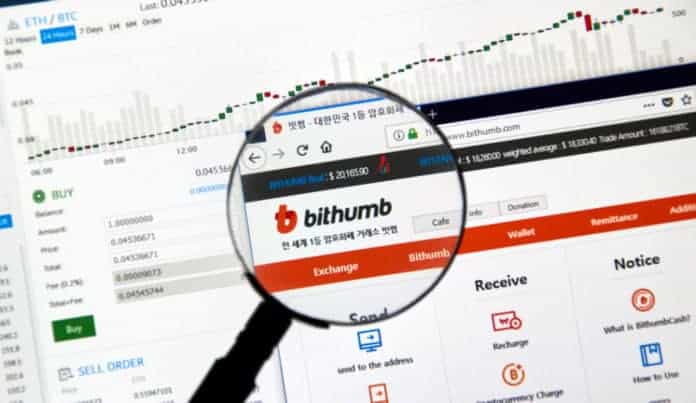Bithumb, which is the most popular Bitcoin trading platform in South Korea, announced its plan to ban cryptocurrency trading in 11 different countries on Tuesday.
According to Bithumb’s press release, the decision to undergo such bans comes from the growing concerns of money laundering across the globe. The South Korean cryptocurrency exchange will, therefore, comply with international anti-money laundering laws and procedures by blocking transactions from countries that are included in the Non-Cooperative Countries and Territories (NCCT) list.
These 11 countries include North Korea, Bosnia and Herzegovina, Ethiopia, Syria, Iran, Iraq, Sri Lanka, Trinidad and Tobago, Tunisia, Vanuatu, and Yemen. The inter-governmental Financial Action Task Force (FATF) said these countries had not taken sufficient measures to combat terrorist financing, money laundering, and other threats to the international finance system.
The South Korean cryptocurrency exchange stated that the outright ban of the countries in the NCCT list would help prevent the Bithumb platform from being used to assist money laundering or any form of criminal activities. They will not accept any users and will disable all user accounts from these mentioned countries starting June 21, 2018.
“We will strictly enforce our own rules and protect our investors while we actively cooperate with local authorities,” a Bithumb spokesperson said.
Bithumb Tightens Security Measures
Bithumb, which is South Korea’s largest cryptocurrency exchange and the fifth largest exchange in the world, currently has over $400 million cryptocurrency tokens being traded over 24 hours, as seen on CoinmarketCap.
With a high volume of cryptocurrency trades, Bithumb mentioned that its decision to implement international anti-money laundering policies was based on the recommendations from the authorities of the South Korean Government and the Korean Blockchain Association.
For starters, the Korean Blockchain Association is a self-regulatory industry group created in December 2017 to uphold ethical boundaries to encourage and foster greater transparency in the South Korean cryptocurrency trading market. Express reported that the self-regulatory group has 66 members at present, including 25 of the largest cryptocurrency exchanges in South Korea.
As for foreign users, Bithumb also announced a mobile verification process that will ensure that users cannot deceive the system and platform. The new verification system will kick off next month.
Self-regulations Rises As Governments Are Slow to Regulate Cryptocurrency Industry
Unfortunately, many countries have a little knowledge and experience in cryptocurrencies and blockchain technology. In response to the absence of clear government regulations, most companies have formed self-regulatory bodies to promote ethics and equality in the industry.
These bodies, such as the Korea Blockchain Association, do not only educate and inform governments about appropriate regulations in the cryptocurrency industry, they also help the cryptocurrency industry grow sustainably.
“The public interest in cryptocurrencies represented by Bitcoin has soared, and the excessive speculative funding has flowed into exchanges,” Chin Dae-Jae, the former South Korean Minister of Information and chairman of the association, said. “The association wants to be an effective communication channel between the government and the industry.”
South Korea is not the only country with a self-regulatory industry group. In India, the Digital Asset and Blockchain Foundation of India was founded in February 2017. In the U.K., seven of the largest cryptocurrencies in the world formed Crypto UK. Even Japan, where the Japanese government has taken an active approach to cryptocurrencies, has also developed its own self-regulatory body, especially since the Mt. Gox and Coincheck hacks.






